Is your CPD Up-to-date?

Here are just a few examples to help you to ensure that your CPD is up-to-date
Engaging in Continuing Professional Development (CPD) is a crucial component of a professional’s journey. CPD activities can take on several forms, each providing unique learning experiences that contribute to the growth and enhancement of professionals in the field of football medicine and performance. The British Association of Sport and Exercise Sciences (BASES) recommends multiple avenues for CPD engagement, including work-based learning, professional activity, formal/educational activities, self-directed learning, and other contributions to society.
Work-Based Learning: Work-based learning is one of the most direct forms of CPD, involving real-life, on-the-job experiences that allow professionals to apply and develop their skills and knowledge. For instance, professionals in a football performance department may take on roles supervising junior staff or interns. This offers opportunities to hone leadership skills, share knowledge, and gain new perspectives from less experienced staff members. Reflective practice, another form of work-based learning, enables professionals to evaluate their actions and decision-making processes in the field. In the fast-paced environment of a football match or training session, taking the time to reflect on the effectiveness of decisions made can be a valuable learning experience.
Professional Activity: Participation in professional activities provides opportunities for expanding one’s professional network and contributing to the broader profession. Serving on committees of professional organizations like BASES or the FMPA, or participating in mentorship programs, can foster a deeper understanding of the profession’s policies and governance. For instance, a professional serving as a mentor in a scheme for newly graduated sports scientists could broaden their own understanding and perspective while contributing to the development of the next generation of professionals.
Formal/Educational Activities: These include activities like writing articles or papers, attending workshops, seminars, and conferences, or pursuing further education. A physiotherapist within a football performance department might attend a seminar on the latest advancements in injury prevention techniques and then apply this new knowledge directly in their practice. Writing a research paper on a topic of interest, such as the impact of various recovery strategies on player performance, also drives learning and contributes to the broader professional knowledge base.
Self-Directed Learning: This type of learning allows for control over the learning pace and depth, and can involve reading academic journals, books, or articles, and staying updated with the latest research in the field. For example, regularly reading journals like the European Journal of Sports Sciences (EJJS) or the British Journal of Sports Medicine (BJSM) can keep professionals in football medicine and performance at the forefront of emerging research and best practices.
Other Activities: Other forms of CPD include voluntary work or public service. Taking part in community outreach programs or delivering sports medicine services at amateur or youth football clubs can offer valuable experiences. These activities broaden perspectives, foster empathy, and hone crucial skills like communication and teamwork, which are essential in a collaborative field like football medicine and performance.
In conclusion, the methods of engaging in CPD are diverse and adaptable to an individual’s professional needs and career aspirations. Each method offers unique opportunities to grow and enhance one’s professional practice, ensuring that football medicine and performance professionals remain relevant, effective, and valuable within their field.
References BASES. (2019). The British Association of Sport and Exercise Sciences. https://www.bases.org.uk



